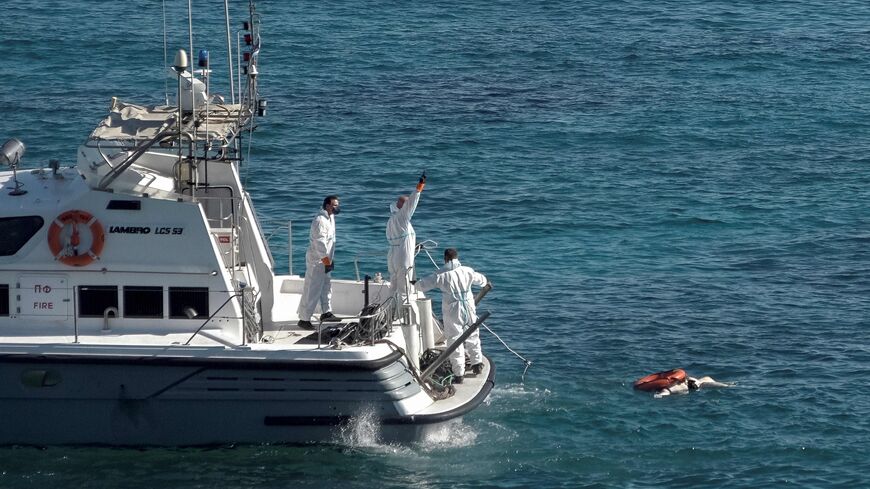PARIS — The "visa war" between France and its former North African colonies of Morocco, Algeria and Tunisia is over. The hatchet was buried when French Minister of Europe and Foreign Affairs Catherine Colonna and Minister of Interior Gerald Darmanin visited Rabat and Algiers in December and declared that “consular issues” were back to normal.
Paris had reduced visas by 50% to Morocco and Algeria, and 30% to Tunisia, because those countries were reluctant to take back more than a handful of their nationals who had illegally reached French territory. The policy hurt the mostly francophone middle and upper middle class of the Maghrib, which regularly visits France for business, education, medical treatment or leisure. It was met in North Africa with furor and promises to sever the privileged relations with France (and Europe) in favor of China, Russia and — in the case of Morocco, a signatory of the Abraham Accords — Israel.
While face-saving promises to take back illegal migrants were made at the end of the process, the very crisis was symptomatic of a sea change in relations. The gap is widening between an aging and prosperous “Old Continent” and its young and hungry southern and eastern neighbors, with a booming birth rate. Europe as a whole is growing older and needs immigrants to fill job vacancies and contribute to the pension system.
But European extreme-right parties are on the rise everywhere, and many voters fear a “Great Replacement” by Africans and Asians, as well as terror attacks by the likes of Al Qaeda and ISIS. Some of the terrorists who struck Paris, Munich and Brussels actually followed the migratory routes, passing as refugees through the Balkans. Contradictory to the need for migration to increase the workforce, there is also strong popular opposition to proposals for a later retirement age, in order to alleviate the looming pension crisis. The only EU country where a significant influx of foreigners was welcome is Germany, with its huge labor-intensive industrial sector, which accepted some 750,000 Syrians fleeing the civil war.
The Global South countries are also reassessing their relations with their former colonial masters. They challenge what many perceive as an unequal partnership, fraught with domination inherited from the past. But, there again, inner contradictions abound. Emigration to Europe remains the safety valve when southern regimes cannot provide jobs at home. And North African countries became simultaneously net exporters of their own citizens to Europe and importers of West and Central African populations on their way to Europe. Illegal crossings of the Mediterranean are common, but capsized boats make the headlines, and the rescue policies have created strong rifts within the EU between the frontline Mediterranean states and the others.
Migratory pressure can also work in the Global South's favor against the EU. Morocco has successfully used its capacity to control its borders with Ceuta and Melilla – the two Spanish enclaves on its coast – to convince Madrid to back its stand on the Moroccan identity of Western Sahara. It immediately led in turn to a major crisis between Spain and Algeria, and it may also pull in France, if President Emmanuel Macron visits Morocco in the coming months to seal the end of the “visa war.”
For Turkey also, the flow of undocumented immigrants from Afghanistan, Iraq and Syria who try to cross into Greece has become a major bargaining chip. It allowed President Recep Tayyip Erdogan to receive some 6 billion euros from Brussels.
In Libya, Italy has financed coast guard vessels in an attempt to farm out control on migration so as to alleviate the burden on the Italian southern island of Lampedusa. The victory of Giorgia Meloni’s far-right and anti-immigrant slate last September in Italy is close to the tipping point of right-wing and conservative EU governments vis-à-vis their Global South.







